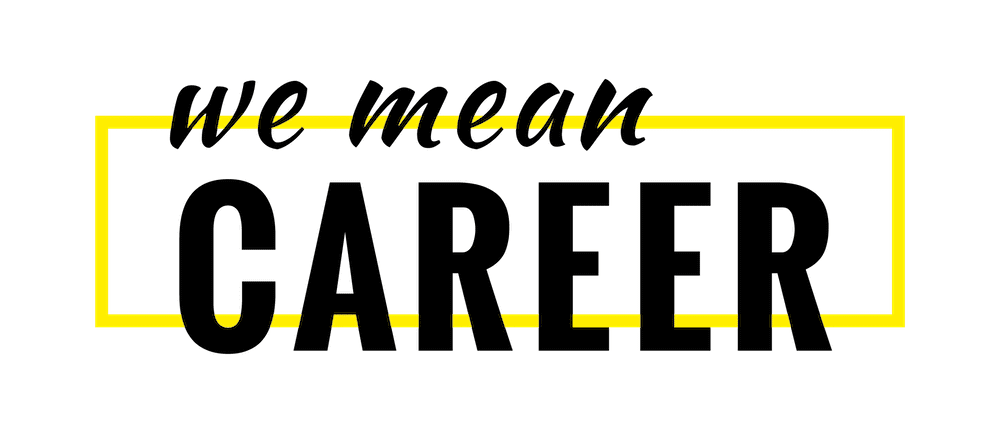HOW TO IMPROVE TIME MANAGEMENT
One of the most effective ways to increase productivity at work is to improve time management skills. Rather than one large skill, time management is a combination of skills that, when operating in harmony, lead you to accomplish your goals without draining all your energy.
Improving time management at work doesn’t have to be hard – in fact, once you start to implement these simple techniques you will find that your professional life is running more smoothly than ever.
This guide offers you an overview of some of the most popular time management techniques available. It will go over the benefits of proper time management and will leave you with some tools to start applying in your business or workplace.
Let’s get started!

What Exactly is Time Management?
In short, time management is the process of planning and organizing your days, hours and minutes in an effective manner so as to increase your productivity and decrease stress. There are many methods and theories available today to help you do this.
“Work Smarter, Not Harder”
The old adage “Work smarter, not harder,” applies just as well today as it ever has. No one likes to feel like they’re wasting time, and no one likes to work harder than they have to in order to get something done. However, knowing how to work smarter is often where people get tripped up.
Busy Versus Effective
Checking off seemingly endless boxes on your to-do list can feel nice at the moment, but at the end of the day have you really accomplished anything? Proper Time Management switches your focus from activity to productivity. Rather than busying yourself with energy-wasting tasks, effective Time Management empowers you to take action in service of your goals.
Benefits of Time Management
Listing all the benefits of Time Management could take forever! But here are some of the most impactful benefits you will receive once you start to improve your Time Management.
- Less Stress
- More Energy
- Better Work/Life Balance
- More Goals Accomplished
- More Opportunities
- Greater Sense of Satisfaction with Life
- More Productivity
- Improved Health
Time Management Strategies and Concepts
The temptation to get distracted or lose focus is great when your Time Management game is not strong. On any given day there are a million little things that want to suck your energy or keep you from taking big action in the direction of your greater vision.
These Time Management techniques offer increased endurance, focus, and vitality. If one of these methods resonates with you, investigate it more deeply and begin to apply it in your workplace or business.
Time Management and Productivity: Tactical vs. Strategic Thinking
Strategic thinkers have a leadership mentality – they have a big vision and can easily step back and see the whole picture or vision at once. Tactical thinkers have a management mentality and focus on the implementation of the vision.
Generally, you will be more inclined to be either a tactical or a strategic thinker. However, to make a decision or take action using only one of these two types of thinking is a waste of your time and energy.
High-performing women are often placed in a position to have to use strategical and tactical thinking at once. Tactical thinking alone is a lot of busy work, often in the wrong direction. Strategic thinking alone can leave you with plenty of ideas but without the activation energy needed to execute the necessary steps to arrive at your greater vision.
When you combine tactical and strategic thinking, you become like an entire military team in one body. You have the ability to see the goal, see what needs to be done to achieve it, and take the proper action in line with it.
Getting Things Done (David Allen Method)
Getting Things Done (GTD) is a Time Management method created by productivity consultant, David Allen. He realized that it took a lot of energy to continuously recall the tasks that needed to be accomplished toward any goal.
Rather than continue to try to store all the “to-do” list information in the brain, Allen devised a system of recording all the needed projects and tasks externally. Once these tasks are moved from the brain and into a word document or journal, he then begins a process of breaking down the projects and tasks into easily actionable steps.
The idea is to make the steps simple enough so as to eliminate any reason not to do them, while simultaneously alleviating the brain of excess stress created by trying to hold important information in memory.
The 80/20 Rule
Also known as the Pareto Principle, the 80/20 rule was offered up by management consultant Joseph M. Juran. The principle has a rich and interesting history dating back to 1896 when Italian economist Vilfredo Pareto noticed that 80% of Italy’s land was owned by 20% of the population.
This principle suggests that 20% of your action (or cause) will yield 80% of your results (or effect). To clarify this, imagine a list of ten things you feel you need to do in order to accomplish a goal. The 80/20 rule proposes that two of those tasks will be more effective and produce more results than the other eight combined.
How does this relate to Time Management? Well, if you know that only 20% of what you could possibly do in a day will yield 80% of your return, wouldn’t you place your energy into finding and then focusing on that vital 20%? If you notice that your energy is leaking away into all sorts of menial tasks that produce very little – if any – positive result, it may be time to start using the 80/20 rule.
Batching
The idea of Batching is pretty simple: group similar tasks together and then accomplish them in one fell swoop. For example, instead of getting distracted every five minutes when you recall an email that you need to send or answer, make a list of all the emails that need to go out and do them at once. Then when it’s time to switch tasks you know that you’ve checked off all the important emails and can, therefore, focus on the new task at hand. This method allows you to rule your day, rather than letting the influx of other’s needs overrun your own.
Pomodoro Technique
Created by Francesco Cirillo in the 1980s, the Pomodoro Technique breaks down your workday into intervals. It works like this:
- Set a timer for a certain amount of time (let’s say 25 minutes)
- When the timer goes off, write a check on a piece of paper
- If you have less than 4 checks, take a short break (no more than 5 minutes) at the end of every interval
- After 4 check marks, take a longer break (up to 30 minutes)
- Start the process over
This technique uses the human attention span to its advantage. It is easier to get yourself to work for short, intense periods of time with small breaks than face hours of work with no structure.
Time Management Skills
While all the aforementioned techniques will help you improve your time management, it is of equal importance that you begin to strengthen the various skills needed to hone your overall Time Management capability. Rather than a skill unto itself, Time Management is a combination of many skills.
The following is a list of some of the most important skills to cultivate in order to give you a solid foundation for enhanced Time Management.
- Goal Setting
Know what you’re going after! Set strong goals and ensure that every action you take aligns with the realization of those goals.
- Self-Awareness
Know who you are and what you stand for. Be willing to question yourself, not unkindly, but for the purpose of developing more clarity within yourself as to what you’re doing and why.
- Self-Motivation
You can consume all the self-development material in the world, but if you can’t get yourself motivated to get things done, eventually even the best books, tapes and videos out there will stop working for you. Combine your own energy with the energy of other self-starters and get to work!
- Focus
Continuously check in with your focus. Are you finding yourself often distracted? If you have strong goals, and you’ve created a powerful Time Management system, you can be free to place all your focus on what’s right in front of you. The ability to hold your focus where you want it to without it wandering off on its own tangent is a true superpower.
- Stress Management
We all get stressed. It’s going to happen. The point is not to avoid stress, but to understand how to work with yourself (another opportunity to practice self-awareness!) in order to manage the stress that you’re under. Take walks, meditate, drink lots of water, BREATHE. Give yourself breaks when you need. You may think that the more you grind the more productive you will be, but the opposite is almost always true.
- Patience
Changing habits and applying new techniques take time. Give yourself some grace while you up-level your daily routine. The more you punish yourself for not “doing better” the more you set yourself back. Be kind to yourself. You deserve it.
The Most Important Tips for Time Management
These Time Management hacks will help boost you into greater efficiency and productivity. Give them a try and see how even a simple change can have massive effects.
- Do the Most Important Thing First
Prioritize, prioritize, prioritize! When you tackle the biggest, worst and most important thing on your list first, you set yourself up for a powerhouse day. Don’t waste your time on small-potatoes. Attack the most important task first and watch the rest of your day flow with more ease.
- Say “No”
People – especially women – have been conditioned not to say “no.” Yet it is by using the power of your “no” that will save you time and keep you on track. When you know your goals and you’ve got your Time Management tools working for you it will be much easier to know when to say “no” to something that comes your way.
- Get Some Sleep!
It seems so simple, and it is. It’s also one of the best ways to increase your productivity. The better your night’s sleep, the more energy you have to approach your day. It’s that simple.
- Single-Minded Focus
Don’t be afraid to place all your attention on the task at hand. If you’ve set yourself up with good Time Management techniques, you’ll enjoy a greater ability to focus solely on what’s in front of you.
- Get an Early Start
You don’t need to wake up at 4a (unless you want to!), but it’s true that by waking early you set yourself up for more success in your day. It may not feel great as you first begin to shift your sleep schedule, but once you’re in the habit of rising early, you won’t regret it.
- Limit Your Screen Time
This is a big one. In today’s world, it’s easy to get sucked into whatever is happening on one of the many screens that surround you. Actively limit your screen time so that you can actually enjoy it without it draining your day away from you.
- Use Waiting Time Efficiently
Whenever you find yourself waiting, don’t just start scrolling social media. Instead, create a “waiting time” list of helpful actions. Read, write, create helpful lists – whatever it is, use your waiting time effectively.
- Commit
When you’ve created a vision and have set goals, make sure you take the time to truly take in what you’ve just created for yourself. Feel it. Feel yourself inside of the new reality you’ve envisioned and then COMMIT. Hold yourself accountable to your dreams, no matter what.
- Practice Stillness
Even if it’s just for ten minutes a day, the art of doing nothing can go a long way for your energy levels, your productivity, and your general mood. This is the time for you to be with just you. Let the waters still, let the clouds dissipate. Just breathe and be.
- Focus on the Essentials
Allow yourself to get really clear on what you want and need and then be ruthless in eliminating from your life anything that is not essential to the realization of those wants and needs. You may not be able to essentialize your life all in one go, but know for yourself what aligns and what doesn’t and commit to either slowly or quickly shifting away from all that doesn’t line up with where you’re going.
11. Read the book ‘15 Secrets Successful People Know About Time Management‘ by Kevin Kruse
Conclusion
Your time is your biggest asset. How you use it determines your level of success and your overall quality of life. You create yourself with every action you take and thought you choose. It’s important to distill your life down to what is important to you – you and no one else.
The more you begin to strip away useless, time-sucking activities from your day, the more you will begin to realize that big vision you have for your life.
Even if you are already a high-performing professional woman, it is highly likely that there are still places where you could implement better Time Management. Give some of these tips, tricks, and techniques a try and watch your productivity soar.

![15 Secrets Successful People Know About Time Management: The Productivity Habits of 7 Billionaires, 13 Olympic Athletes, 29 Straight-A Students, and 239 Entrepreneurs von [Kruse, Kevin]](https://images-na.ssl-images-amazon.com/images/I/514of%2BuR-mL.jpg)


